World Eye Donation Day: Nelson Hospital’s First Eye Implant Surgery
World Eye Donation Day: Nelson Hospital’s First Eye Implant Surgery…
9518951959
info@nelsonhospitals.com
9518951959


PCOD (Polycystic Ovarian Disease) and PCOS (Polycystic Ovary Syndrome) are two terms often used interchangeably, but they are not the same. Both conditions affect a woman’s ovaries, leading to hormonal imbalances that can affect menstruation, fertility, and overall well-being. However, understanding the key differences between PCOD and PCOS is crucial for accurate diagnosis and treatment.
In this blog, Nelson Hospital will guide you through the essential differences between PCOD and PCOS, their causes, symptoms, treatment options, and how they impact fertility.
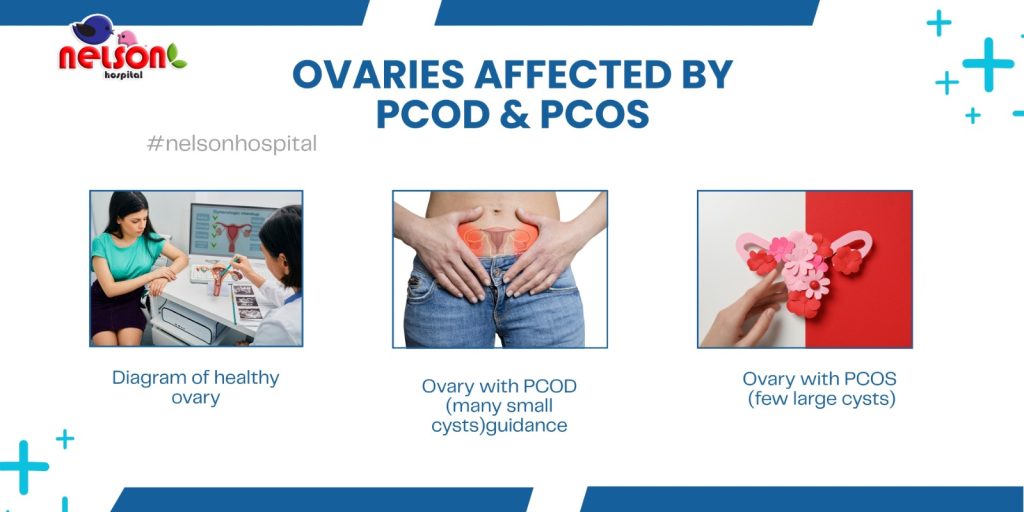
PCOD (Polycystic Ovarian Disease) is a medical condition where the ovaries grow many cysts (small fluid sacs). These cysts are typically harmless and can vary in size. In women with PCOD, the ovaries produce an excessive amount of male hormones (androgens), leading to various symptoms.
PCOS (Polycystic Ovary Syndrome) is a more complex hormonal condition that not only affects the ovaries but can also impact various systems in the body, including metabolism and cardiovascular health. Unlike PCOD, PCOS is characterized by the presence of multiple cysts in the ovaries, but it also involves chronic hormonal imbalances that lead to more severe symptoms and complications.
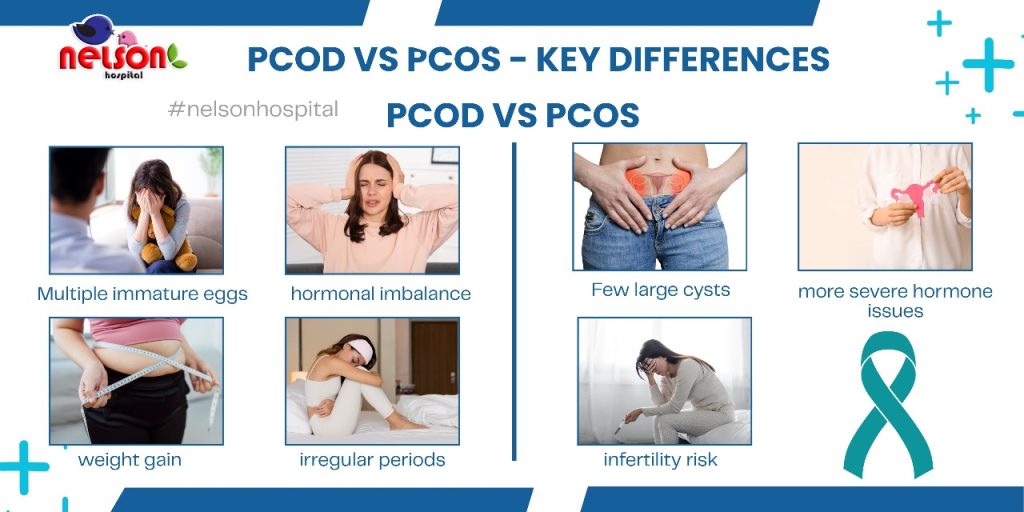
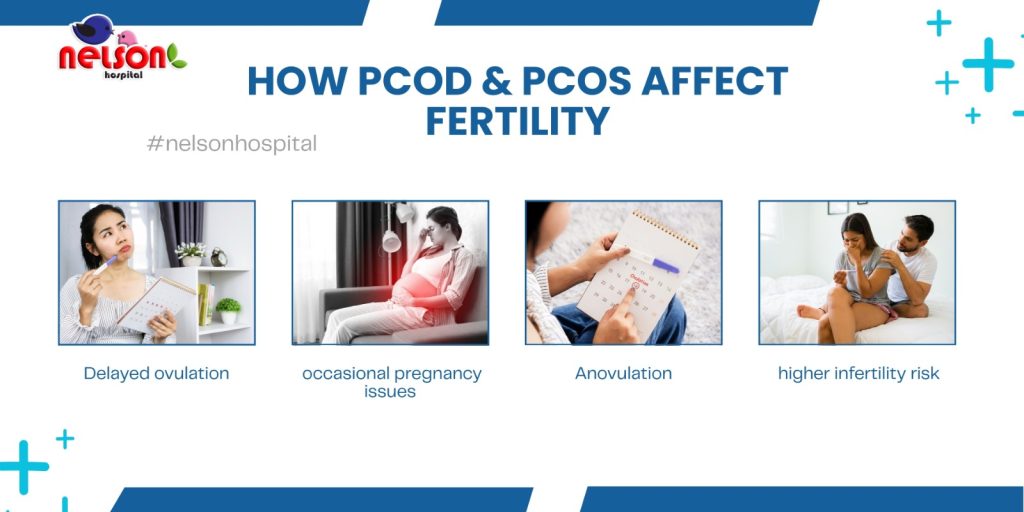
Both PCOD and PCOS can affect a woman’s fertility, but the severity varies between the two conditions.
At Nelson Hospital, we offer comprehensive fertility treatments, including ovulation induction, IUI, and IVF, to help women with PCOD or PCOS achieve pregnancy.
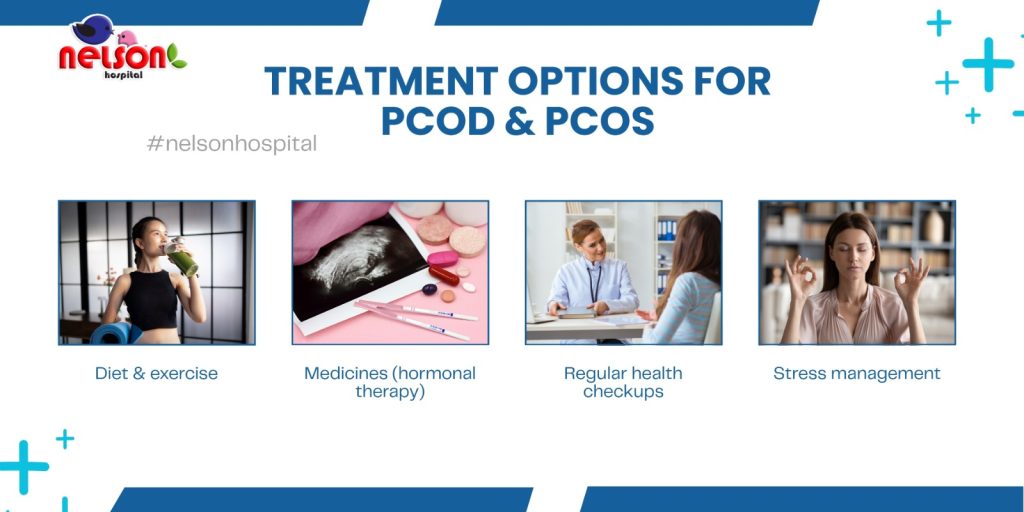
PCOD Treatment:
PCOS Treatment:
At Nelson Hospital, we offer personalized treatment plans to address both PCOD and PCOS and help women achieve their health goals, including fertility support.
At Nelson Hospital, Nagpur, we provide comprehensive diagnosis, treatment, and support for women facing reproductive and hormonal issues.
Here’s how we support you:
We believe in empowering women with knowledge, care, and personalised solutions. Early diagnosis and the right support system can make all the difference.
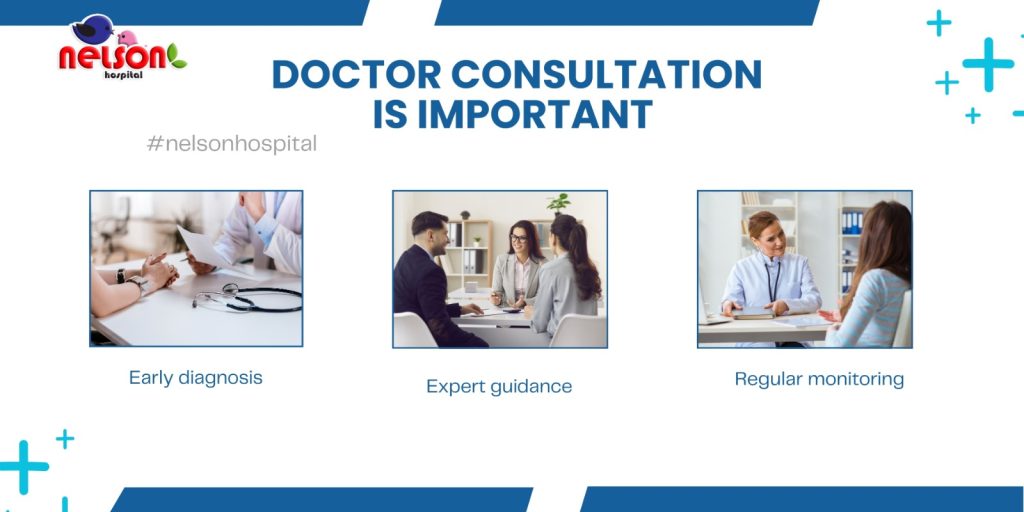
It is important to consult with a healthcare provider if you experience any of the following symptoms:
Early treatment and diagnosis can control symptoms and enhance quality of life.
Although PCOD and PCOS are both related to hormonal imbalances and can affect fertility, understanding the key differences is crucial for effective treatment. If you are experiencing symptoms or struggling with fertility, Nelson Hospital provides expert guidance and treatment for both conditions.
For more information or to schedule a consultation, contact Nelson Hospital today.
World Eye Donation Day: Nelson Hospital’s First Eye Implant Surgery…
Why Food Poisoning Is More Common in Monsoon and What…
Why Are Urine Tests Important for Early Disease Detection? When…
Which Food to Avoid for Kidney Stones and What Foods…
When Surgery Is Needed in Urology Cancer Treatment: A Doctor’s…